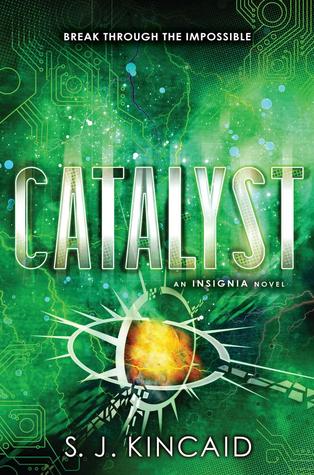
Northrop, Michael. Book of the Dead (Tombquest #1)
January 27th 2015 by Scholastic, Inc.
E ARC from Edelweiss Above the Treeline
Alex is a sickly child who spends a lot of time at the Metropolitan Museum of Art where his mother, Dr. Baur, works as an Egyptologist. The doctors don't quite know what is wrong with him, but he has episodes, and the medicine they give him is only marginally helpful, but he has his friend Ren to hang out with while their parents are busy on a new installation. When Alex ends up being dead for two minutes, his mother invokes the Lost Spells that cure Alex, but also sets off horrific complications. Five Death Walkers are let loose. It rains blood in London, and causes odd things to happen at the exhibition. Things are knocked askew, and the Stung Man, the center of the exhibit, goes missing. So does Dr. Bauer, so Alex and Ren, accompanied by Dr. Todtman, a German scholar who knows more about ancient evils that he lets on, go looking for her and also attempt to figure out how to set things right now that there is a portal to the afterlife open. They will have four more books in the series to accomplish this!
Strengths: Egyptian mythology is always a good topic, and I liked Northrop's reasons for agreeing to write a book for a "multiplatform experience"-- he had troubles reading and spent lots of time playing Dungeons and Dragons. The action and adventure are decent, and I liked that they had supportive adults.
Weaknesses: The beginning of this was kind of depressing, with Alex sick all the time. Not the way to drag kids into a book. Always start with the evil mummies!
What I really think: Nothing says "This is gonna have a crappy binding" like the phrase "multiplatform experience". All the kids will want these, but luckily it's not a gazillion book series like 39 Clues. I can do five books, no matter how poorly bound they are. Northrop is a strong writer who has produced several really good books-- Plunked, Rotten and Trapped were all solid.
 Kincaid, S.J. Catalyst (Insignia #3)
Kincaid, S.J. Catalyst (Insignia #3)October 28th 2014 by Katherine Tegen Books
In the final book of the Insignia trilogy, Tom Raines is in trouble again: Blackburn links up with his neural processors so he can "tune in" and see what Tom sees, but he also wipes Tom's memory so he doesn't know it. Tom returns to school where he runs into a few problems-- he talks with Medusa, but she leaves him with a virus that Wyatt has to clear out of his system, which makes Yuri a bit angry, he continues to train himself, and also work with new plebes. He also gets approached to be sponsored as a combatant by Vengerov's Obsidian Corporation, but there are bigger problems. All of the heads of the corporations are being killed off, and Tom is suspected as being the "ghost in the machine" responsible for these deaths. Training continues with the drones, but Tom soon realizes that they might be training for the wrong apocalypse. An asteroid heads toward earth, and Medusa is somehow able to redirect it, but there are still lots of casualties, and Tom's ne'er-do-well father might be one of them. On break from school, he needs to be with an adult, so he visit's his mother, only to realize that the reason she no longer cares about him is that she has been implanted with a neural processor of her own. This might be a bigger problem for society all too soon-- there is a plot to release Austere-grade processors that people will take orally, and then Vengerov will be in control of the whole world. When Tom tries to stop him, Vengerov shuts him down and encloses him in a tiny room, playing mind games and keeping him sedated. How can Tom escape and help to save the rest of the world?
Strengths: Lots of good science fiction, and plenty of action. The idea of computers fusing with people's brains is not out of the realm of possibility, and is a fairly frightening thought. I also liked the interaction with the characters in the school, and Tom's interactions with his parents added a layer of emotional complexity to his character.
Weaknesses: In part because I don't remember the other books too well (I read but did not review #2, although I did remember the big fight with Medusa), the machinations of the various corporations, Blackburn and Vengerov were a bit confusing.
What I really think: I liked the writing and the characters, as well as the basic premise of the book, but there were points in time when the plot became so confusing that I skimmed more than I read. At one point, everyone seems to be getting or confessing to having neural processors, and I no longer cared. My readers who really like science fiction do enjoy this, and it's an excellent, manageable length for a middle grade series, and appropriate for high school as well.
No comments:
Post a Comment